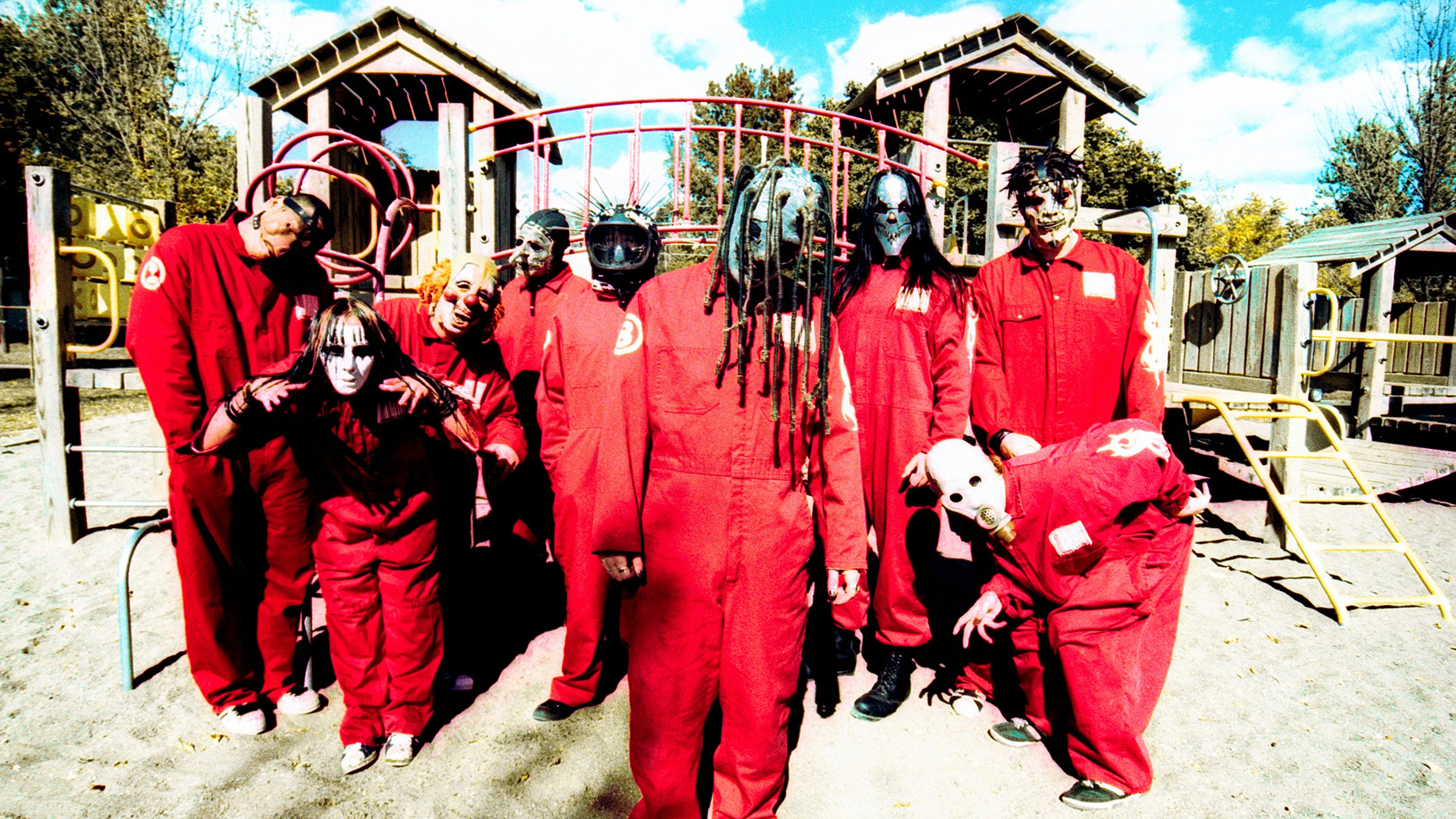‘The whole thing, I think it’s sick. The whole thing, I think it’s sick. The whole thing, I think it’s sick…’
Unsettling opening hooks rarely work their way under the skin as insidiously as the looped, pitch-shifting sample of Corey Hurst, former cellmate of Charles Manson 'family' member Susan Atkins, from 1973 documentary Manson that comprises most of 742617000027 – the first track from Slipknot’s self-titled debut. A 36-second downward spiral from comfort into unhinged chaos, it perfectly brought about that spine-tingling essence of fear and loathing, adrenaline and adoration that made the band so compelling in the flesh. But even with the backing of Roadrunner and fast-rising producer Ross Robinson, capturing their unspeakable essence on tape would be a daunting task.
“Nothing was a certainty back then, nothing was a guarantee,” Shawn stresses. “There was no gold at the end of the rainbow. It was just us against everyone else. In our hearts, it still is…”
California was calling, and the 1,800-mile road trip from Des Moines to the Pacific Coast that would see the band cross open plains, craggy mountains and arid deserts emphasised how far they were from home. Shawn remembers their naïveté, opting to stay at the Roadrunner Motel on the way “because it had the same name as our label”. On arriving at Los Angeles’ Cole Rehearsal Studio for pre-production, they were stunned to find KISS’ original line-up preparing for the Psycho Circus tour in the same building.
But on leaving behind the crack addicts and gangsters of The City of Angels for the rattlesnakes and mountain lions of rural Malibu an hour west, shit got serious. The Indigo Ranch – a historic hunting lodge, converted to a recording studio, which has since been destroyed by a 2007 wildfire – was where Ross Robinson had already overseen definitive works by Korn, Limp Bizkit and Amen. It was there that Slipknot dug in for war.
“We brought this kind of cloud with us,” Shawn recalls. “Outside, the sun was shining, we were picking oranges and looking out at the ocean. Compared to Iowa, it was like heaven on earth. But as soon as we were inside, we wanted the darkness. We didn’t care about going down to Melrose or buying shoes. We only cared about making mayhem. So that’s exactly what we did.”
